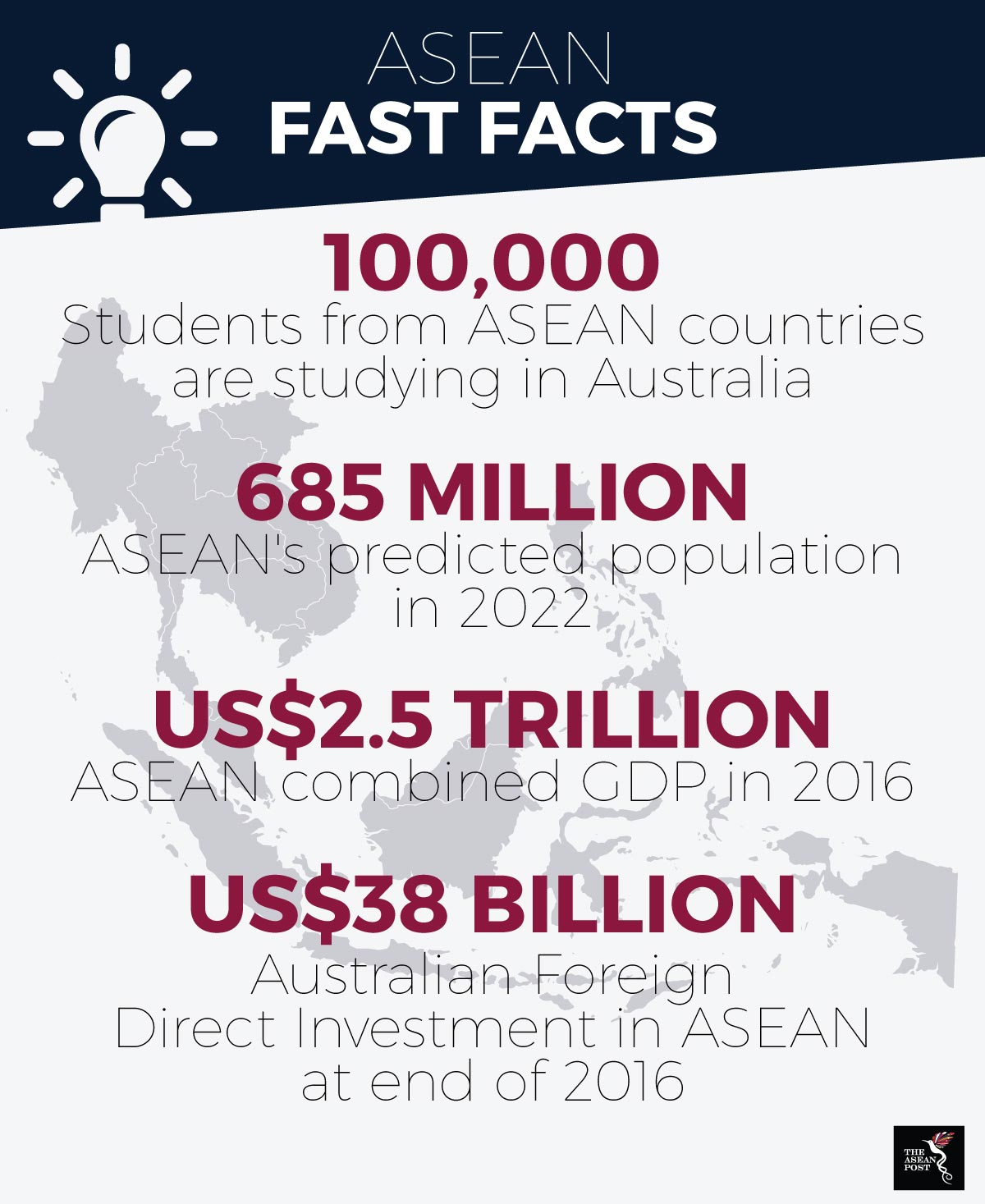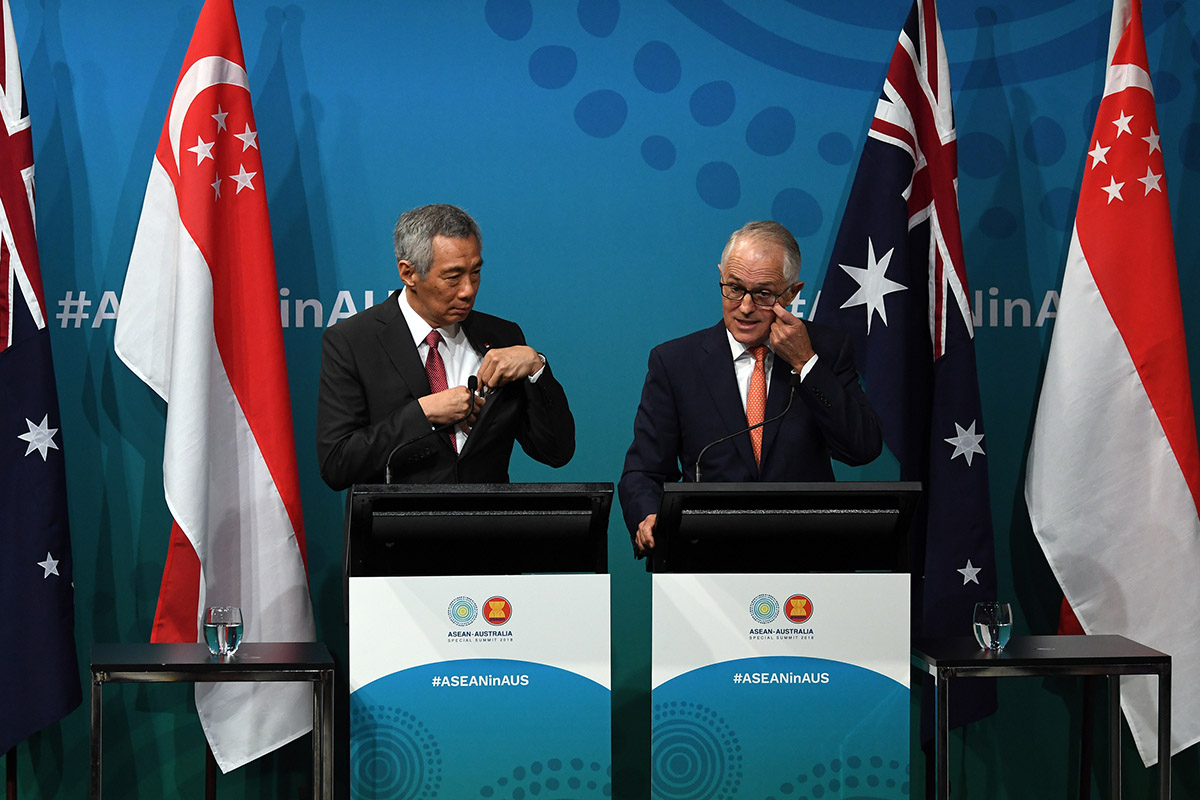Relations between ASEAN and Australia are longstanding, yet substantive action to enforce mutual commitments may have been lacking till now.
As the first of its kind, the ASEAN-Australia Special Summit is expected to do much to foster deeper trade relations between ASEAN and Australia, as well as advance joint counter-terrorism efforts within the region.
“We are also looking at new areas through the summit: cyber, digital commerce and digital trade standards,” Simon Merrifield, a staff member of Australia’s Department of Prime Minister and Cabinet told Lawyers Weekly.
“ASEAN’s success is Australia’s windfall and we want to deepen that connection as well as build on it,” he added.
While the special summit will be attended by most ASEAN leaders, Philippine president Rodrigo Duterte has said that his reasons for not attending are due to the need to attend to domestic affairs. His absence is a glaring one given recent reports of his government’s intention to withdraw from the International Criminal Court, a stance which has provoked the ire of the international community. Another glaring issue is that of the Rohingya, which international human rights groups have called upon Australia to take a strong stance against at the Special Summit.
These issues aside, one of the challenges for both, ASEAN and Australia is to prove their utility to one another. The two sides may already share the same views on deepening trade integration, but such efforts also need to stand the test of surviving the current turbulent trade environment globally.
Singapore prime minister Lee Hsien Loong, speaking as the ASEAN chair at the Special Summit stressed that although the world was moving in the opposite direction, ASEAN needed to deepen integration and interdependence instead.

Source: ASEAN-Australia Special Summit, 2018
The reference to “the world” was made with regards to US President Trump’s recent imposition of tariffs on steel and aluminium imports, which Emeritus Senior Minister Goh Chok Tong recently described as having imposed “…worrying times for Singapore.” The trade tariffs sparked concerns that China would retaliate, potentially causing a global trade war.
Individual ASEAN countries, moreover, could use Australian ties to hedge against the risks of trade wars.
“Singapore cannot do much to shield itself from the impact of Trump’s policies except by remaining very flexible and trying to create a group of core partners to serve to. ASEAN is the most obvious one,” commented Alicia Garcia Herrero, chief economist at Nataxis to the Singapore Business Review.
Indonesia is also said to be pursuing bilateral relations with Australia. Indonesian president Jokowi Widodo recently stated that “technical issues” were the only thing that stood in the way of Indonesia finalising a free trade agreement with Australia.
“I will use the meeting in Sydney to give a political push to settle the remaining issues and accelerate the finalisation of the FTA,” he told the Australian Financial Review in March. He had also recently lauded the idea of Australia joining the ASEAN bloc as a “good idea” in order to ensure better political and economic stability in the region.
Widodo’s main concern is national economic growth, which he said would increase once his infrastructure projects are completed. The current deadline is 2019, in time for the next national elections. Even though his government is still studying its potential position within any regional and bilateral free trade deals, its foremost intention for now seems to be for Indonesia to join the revised Comprehensive Trans-Pacific Partnership (CPTPP).
To foster greater economic growth on the ground, ASEAN and Australia would also most likely need to develop local SMEs further. Mr Lee pointed out that a 10-year strategic action plan was already being implemented within ASEAN. Still, SMEs on both sides would clearly benefit from higher cross-border trade and investment volumes.
ASEAN and Australia each have an interest in greater trade integration as a way to effectively navigate the turbulent geopolitical landscape. The special summit is a good opportunity for both sides to deepen conversations and trust but there also needs to be constant work on these issues after it ends, without which no real progress can truly be made.
